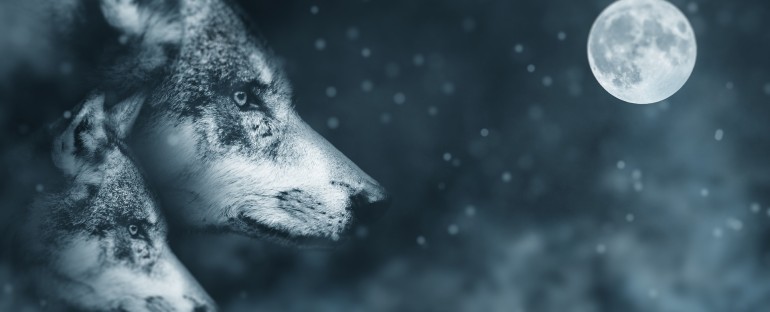The space race began in 1957 with the Soviet launch of Sputnik.1 The Soviets continued to lead with the first manned space flight; which was also an orbital flight.2 The Soviets then led with the first spacewalk.3 The Soviet space program had many firsts. But sometime during the course of the Gemini project, the United States pulled ahead of the Soviets in the space race. How did this happen?
Jim Oberg, former NASA Engineer, space journalist and historian gives some insight.4 On the SPACEFLIGHT episode “The Wings of Mercury,” Oberg describes Soviet Premier Nikita Khrushchev running the space program. At Khrushchev’s direction, the Soviets were the first to have two men in space in separate ships, the first to have a woman in space, and the first to have three men in one space capsule. Khrushchev wanted the Soviets to be the first in everything.
Meanwhile, the United States kept its focus on the end goal of “landing a man on the moon and returning him safely to the earth.”5 All of our missions were very purposefully directed to that end. We had some setbacks.
The Mercury Liberty Bell 7 space craft sank after splashdown.6 The Mercury Aurora 7 flight missed its planned splashdown point by 250 miles due to a series of problems.7 Gemini VIII’s flight ended early after the misfiring of thrusters – endangering the astronauts.8 Gemini IXA failed its objective of testing the astronaut maneuvering unit (AMU) during a spacewalk.9 And the Apollo I fire ended in the deaths of three astronauts.10 All of these unplanned, unforeseen events were not only bad; they were potentially catastrophic or were catastrophic (much like genetic mutations). Teams of engineers, scientists and technicians worked to assess what went wrong; and get the program back on track with the end goal in mind.
This underscores one problem with Darwinian evolution – there is no end goal in mind. Through genetic mutations (copying errors in the DNA) and natural selection, enough genetic information was created to go from a “simple” single celled organism to all of life on this planet in all of its integrated complexity; without anyone asking: Where are we going with this?
Now out of Russia comes concern about the health effects of the Chernobyl nuclear power plant disaster, more than thirty years later.11 Genetic mutations in animal populations are bad things – surprise! These mutations are “associated with tumors, cataracts, smaller brains, and certain developmental abnormalities.” And they are not being eliminated by natural selection. There is concern of the mutations spreading to surrounding populations. Wolves are being tracked to see if this could happen. No scientist is saying: What happened at Chernobyl is great; creating a lot of genetic diversity; allowing natural selection to work; creating more complex, more advanced life. That is just not happening! I refer to Psalm 104 for my worldview: “O Lord, what a variety of things you have made! In wisdom you have made them all. The earth is full of your creatures.12
Terry Read
- https://history.nasa.gov/sputnik/
- https://www.history.com/this-day-in-history/first-man-in-space
- http://www.bbc.co.uk/news/special/2014/newsspec_9035/index.html
- https://www.youtube.com/watch?v=GyQMuYAq11c
- https://www.nasa.gov/vision/space/features/jfk_speech_text.html
- https://www.worldspaceflight.com/america/mercury/libertybell7.php
- http://www.americaspace.com/2015/05/24/flight-of-the-aurora-remembering-the-mission-of-scott-carpenter-part-2/
- https://www.nasa.gov/feature/geminis-first-docking-turns-to-wild-ride-in-orbit
- http://www.spacesafetymagazine.com/space-exploration/gemini/date-alligator-trials-gemini-ix-a/
- https://www.space.com/17338-apollo-1.html
- https://www.msn.com/en-us/news/technology/could-chernobyl-wolves-be-spreading-mutations/ar-AAA8Jl0?OCID=ansmsnnews11
- https://www.biblegateway.com/passage/?search=Psalm+104&version=NLT
Recent Posts
Recent Comments
Archives
- February 2022
- December 2021
- October 2021
- August 2021
- July 2021
- March 2021
- February 2021
- December 2020
- October 2020
- September 2020
- August 2020
- May 2020
- April 2020
- March 2020
- February 2020
- November 2019
- October 2019
- September 2019
- August 2019
- July 2019
- June 2019
- May 2019
- April 2019
- March 2019
- February 2019
- January 2019
- November 2018
- September 2018
- August 2018
- July 2018
- June 2018
- May 2018
- April 2018
- February 2018
- January 2018
- December 2017
- November 2017
- October 2017
- August 2017
- July 2017
- June 2017
- May 2017
- March 2017
- February 2017
- January 2017
- December 2016
- November 2016
- October 2016
- August 2016
- July 2016
- June 2016
- May 2016
- April 2016
- March 2016
- February 2016
- January 2016
- December 2015
- November 2015
- October 2015
- September 2015
- August 2015
- July 2015
- June 2015
- May 2015
- April 2015
- March 2015
- February 2015
- January 2015
- November 2014



